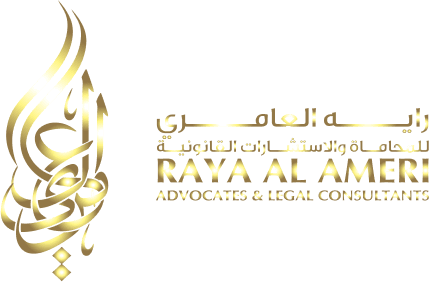Emiratisation Targets for Private Firms in 2024: June 30 Deadline
The United Arab Emirates (UAE) has been progressively implementing laws to increase the employment of Emirati nationals in the private sector. These regulations, under the umbrella of Emiratisation, aim to balance the workforce and reduce dependency on expatriate labor. The new Emiratisation targets for 2024 reflect the government’s commitment to this strategic initiative, with significant legal implications for private firms.
Key Takeaways:
- New Emiratisation requirements for private firms with 20-49 employees.
- Companies with 50 or more workers must meet half-yearly and annual Emiratisation targets.
- Financial penalties for non-compliance can reach up to AED 500,000.
- The Nafis platform supports companies in achieving Emiratisation goals.
The Emiratisation Law: Expanding the Workforce
The Scope of Emiratisation in 2024
The Emiratisation law mandates that private firms integrate UAE nationals into their workforce. As of 2024, companies with 20-49 employees must hire at least one Emirati by the end of the year and another by 2025. This is a significant expansion from previous requirements that only applied to larger firms.
Emiratisation targets are vital for increasing Emirati citizens’ participation in the job market and boosting the country’s economic development, making it a significant national goal. By creating more job opportunities for Emiratis, the initiative aims to reduce unemployment among them. A robust Emirati workforce is crucial for the UAE’s long-term economic stability and growth. Additionally, the program seeks to enhance Emirati identity and cultural preservation by encouraging active participation in the nation’s development.
Compliance Requirements for Larger Firms
Companies with 50 or more employees are required to increase their Emirati workforce by 1% in the first half of the year and another 1% in the second half, aiming for a total increase of 2% annually. By 2026, these companies should achieve a 10% Emiratisation rate.
The Emiratisation law outlines a tiered system for hiring Emirati employees based on the number of skilled workers in a company. Specifically:
- Companies with 50 skilled workers are required to hire at least 1 Emirati employee.
- Companies with 51-100 skilled workers must hire a minimum of 2 Emirati employees.
- Companies with 101-150 skilled workers need to employ at least 3 Emirati employees.
- For companies with 151 or more skilled workers, there must be 1 Emirati employee for every 50 or fewer workers.
The council plans to bring 75,000 Emiratis into the private sector within five years. It offers numerous programs to empower Emirati professionals and incentivize private companies to hire local talent.
Financial Penalties for Non-Compliance
To enforce compliance, the UAE government imposes substantial fines on firms failing to meet Emiratisation targets. Starting July 1, 2024 the ministry will be checking companies’ compliance. Those who fail to meet the target will have to pay a fine of AED 48,000 for every Emirati not hired in the first six months of the year. Calculated at AED 8,000 per month per person, penalties pile up for every month a company is unable to fill up the required slots for UAE nationals. The monthly fine increases by AED 1,000 every year.
For companies with 50 or more employees, the penalty is AED 48,000 for each unfilled position as of mid-year deadlines. This increases monthly, reflecting the government’s stringent stance on non-compliance. For firms with 20-49 employees, fines start at AED 96,000 for each Emirati not hired in 2024, rising to AED 108,000 in 2025.
The Ministry of Human Resources and Emiratisation (MoHRE) and the Council have the authority to impose administrative penalties for violations related to the Emiratisation process. Below are the types of violations and corresponding penalties:
- Falsifying Emiratisation Percentage:
- Fine: AED 20,000 to AED 100,000 per employee.
- Council Penalty: Termination of support and refund of all amounts spent.
- Providing Inaccurate Information or Documents:
- Fine: AED 20,000 to AED 100,000 per case.
- Council Penalty: Termination of support and refund of all amounts spent.
- Having Invalid Documents or Failing to Renew Required Documents:
- Fine: AED 2,000 per month, up to AED 5,000.
- Council Penalty: Suspension of benefits during the period of invalidity, resumed upon revalidation.
- Non-compliance with Decree-Law No. 33 of 2021 Procedures:
- Beneficiary does not join work after permit issuance.
- Beneficiary stops working regularly.
- Establishment fails to inform the Council if the beneficiary stops working.
- Council Penalty: Termination of support and refund of all amounts spent.
- Reassigning Terminated Beneficiary to Receive Support:
- Fine: AED 20,000 to AED 100,000 per case.
- Council Penalty: Termination of support and refund of all amounts spent.
- Failing to Report Changes to Terms of Benefit:
- Fine: AED 20,000 per case.
- Council Penalty: Termination of support and refund of all amounts spent after modifying terms.
- Beneficiary Non-compliance with Training or Study Programs:
- Absent for more than 10 continuous days or 20 intermittent days.
- Council Penalty: Termination of support, refund of all amounts spent, and a one-year ban from the program.
- Failing to Appoint Beneficiary After Training Period:
- Council Penalty: Recovery of all amounts paid during the period of support.
Legal Obligations Under Emiratisation
Companies must adhere to several legal obligations when hiring Emiratis. These include obtaining work permits, drafting employment contracts, and registering employees in social security systems. Compliance ensures that firms not only meet legal requirements but also contribute to the UAE’s economic goals. The Ministry of Human Resources and Emiratisation (MoHRE) urges reporting any violations to its call center at 600590000 or via its smart application.
Compliance with Emiratisation Regulations
The Ministry of Human Resources and Emiratisation (MoHRE) has established stringent guidelines to ensure compliance with the Emiratisation system and prevent fraudulent practices in the Emiratisation in private sector. These regulations aim to support the successful implementation of the Emiratisation law and promote the integration of Emirati nationals into the workforce across the UAE.
Rules for Advertising Emiratisation Jobs
- Firms must not post unskilled jobs or misleading advertisements that do not represent genuine job opportunities.
- Companies cannot refer to the government’s Emiratisation policies and their benefits without prior permission from MoHRE.
- Information on government incentives and support programs for nationals must not be provided without authorization.
Employer Obligations When Hiring Emiratis
Employers must:
- Obtain a work permit for the Emirati from MoHRE.
- Conclude a valid employment contract.
- Pay salaries in accordance with the Wages Protection System.
- Register the Emirati in the pensions and social security system, starting contributions within a month of the work permit issuance.
- Report any amendments to the employment contract that might affect eligibility for the Nafis programme.
Employers must not:
- Deduct salaries under the pretext of benefiting from government support programs.
- Pay Emiratis lower salaries compared to their counterparts in the same position.
Obligations of Emiratis in the Private Sector
Emiratis employed in the private sector must comply with:
- The obligations stipulated by the Decree Law Regarding the Regulation of Labour Relations and its Executive Regulations.
- The decisions related to the Nafis programme.
- The terms set forth in their employment contract.
Fraud Prevention and Compliance
The Ministry of Human Resources and Emiratisation (MoHRE) has identified numerous cases where companies attempted to circumvent Emiratisation laws by unlawfully hiring Emiratis. Inspections are regularly conducted to ensure compliance with Emiratisation regulations. From mid-2022 to May 16, over 1,300 companies were caught violating Emiratisation law. These violations result in severe penalties, downgraded company ratings, and potential legal action.
The number of Emirati employees in the private sector has increased by approximately 170% since September 2021, driven by the Nafis programme. This federal initiative aims to boost the employability of Emiratis within the private sector, underscoring the importance of adhering to Emiratisation in UAE.
To report false Emiratisation or other violations, contact the Ministry of Human Resources and Emiratisation (MoHRE) through their call center at 600590000 or via their smart application.
Support Through Nafis Platform
Utilizing Nafis for Compliance
The Nafis platform is a pivotal tool for companies striving to meet Emiratisation targets. It provides data on qualified Emiratis and supports firms in recruiting and training UAE nationals. This platform is essential for both compliance and fostering a skilled Emirati workforce.
Frequently Asked Questions (FAQs)
Q1: What is the penalty for not meeting the Emiratisation targets? A: Companies face fines starting from AED 96,000 for each unfilled Emirati position in 2024, increasing to AED 108,000 in 2025 for firms with 20-49 employees. Larger firms face fines of AED 48,000 per unfilled position by mid-year deadlines.
Q2: How can companies comply with the new Emiratisation laws? A: Companies should utilize the Nafis platform for recruitment, ensure they follow legal obligations for hiring Emiratis, and engage in regular workforce planning to meet the required targets.
Q3: What sectors are affected by the new Emiratisation requirements? A: The requirements apply across various sectors including information and communications, finance and insurance, real estate, professional and technical activities, education, healthcare, arts and entertainment, and more.
The 2024 Emiratisation targets for private firms in the UAE signify a major legal shift designed to integrate more Emirati nationals into the workforce. Adhering to these Emiratisation law regulations is not only a legal obligation but also a strategic step towards sustainable economic development. Companies must understand and implement these laws, utilizing platforms like Nafis to meet their Emiratisation in the private sector targets and avoid substantial penalties.
Related Articles:
- Emiratisation Law 2024: Pioneering Workforce Transformation
- New Labour Law in UAE 2023 for Private Sector
- Understanding the Implications of Dh500,000 Fines for Violating Emiratisation Rules
For more detailed information and legal assistance, visit Raya Al Ameri Advocates & Legal Consultants.

